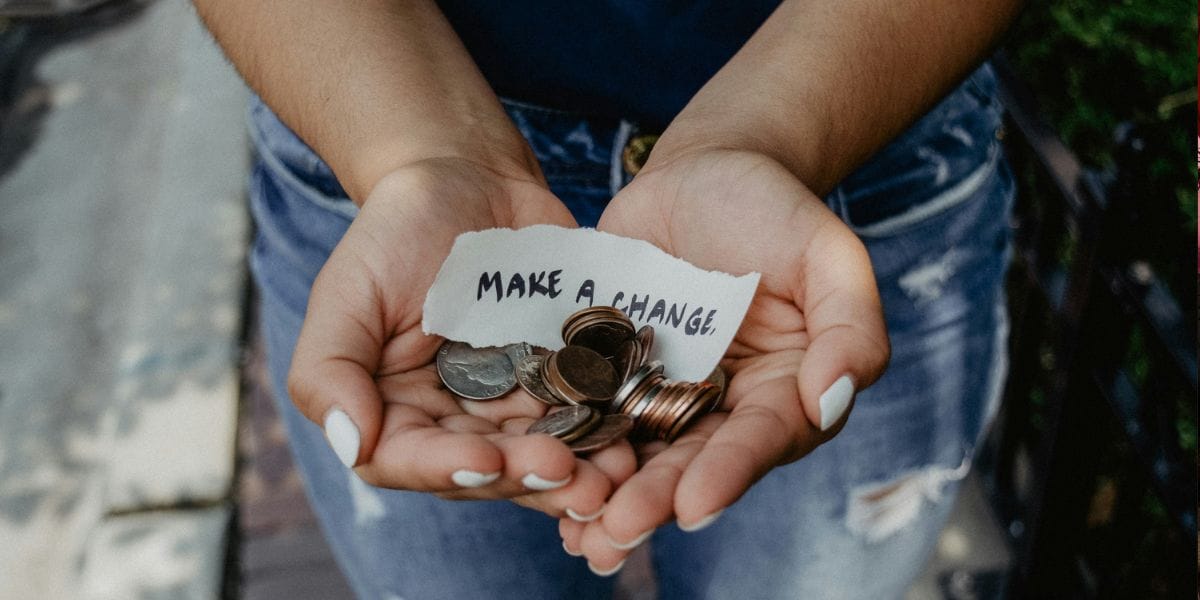Outline:
- The value of your money is measured by your ability to exchange it for things;
- Inflation and deflation refer to changes in how much stuff costs;
- Sometimes this means it’s likely that you have to spend more of your dollars to acquire an equal quantity of goods (or services).
Things get more expensive over time but a dollar will always be worth a dollar.
That’s the principle behind the idea: a lump sum of cash sitting in the bank, or under your mattress, or in your undies drawer, is costing you money.
It’s not that you’re losing out on the opportunity to earn more, rather the dollars are actually becoming less valuable every day.
For a lot of us that’s counter-intuitive. Cash is reliable and friendly and even though we mightn’t have a lot of it, we trust it won’t be suddenly wiped out in a share sell-off.
We trust that if we diligently contribute to our savings account, over time we will have a nice, healthy balance, useful for anything from starting a business to scaling a mountain.
But by breaking down a few ideas, it’s possible to see how cash lump sums are extremely useful for banks to use, but may not get you up that mountain as efficiently as other methods. (And may actually decrease in value if you leave them sitting in an account).
Things get more expensive over time but a dollar will always be worth a dollar.
Purchasing power
The value of your money is measured by your ability to exchange it for things. This is called purchasing power.
As prices move around, so does your purchasing power.
For example, one day a beer might cost you $7. Let’s say you’re the type who gives themselves $50 to spend on a Friday night, which usually buys you around seven beers. It’s a good night.
But a series of things might happen - a worldwide pandemic might reduce the ability of some venues to operate at full capacity.
They might also start having to pay fines because people who moved into an entertainment district might start complaining about the sound levels of the entertainment.
So one day, the price of a beer might bump up to $9.
Your dollars haven’t changed in value, it’s unlikely your salary has increased in-line with the change in beer price, but your purchasing power is lower.
For your $50, you now only can spot yourself five (and a half) beers.
Of course, purchasing power goes both ways. You have more purchasing power at happy hour when beers are $5.
Generally, you will also have more purchasing power when you swap your Australian dollars for Indian rupees and go shopping in India (depending on what you buy, of course).
Cash - sitting in your bank account - is your access to purchasing power.
Of course, you might not want to spend it on beer and might be saving for something more substantial - like opening your own ballet studio or paying for an MCC membership - but ultimately you’d like the power to purchase something at some point in time.
The problem is, cash just sitting there generally loses purchasing power over time, because across economies that are growing larger, the prices of things are generally rising too.
Introducing inflation
Inflation and deflation refer to changes in how much stuff costs.
Inflation occurs when there is a general increase in the price of things - beers, petrol, clothes. And your purchasing power goes down.
Deflation occurs when your purchasing power goes up, and there is a general decrease in the price level of things.
So, inflation is when the ability to buy stuff using a certain currency is diminished (you get less for the same amount of money).
So, it’s not just the price of beer that’s become more expensive. It can affect a whole basket of things. Tickets to the football could become pricier, party frocks could become pricier, doctors' fees could become pricier, renting a car could become pricier.
This means it’s likely that you have to spend more units of your currency to acquire an equal quantity of goods (or services).
If you’re a consumer, it can sometimes be a bummer, but if you run a ballet school, a plumbing business or a shop, price rises could be seen as a welcome event.
This is because when prices are rising, people tend to buy things now rather than pay higher prices later.
You can see this in the property market. If people are under the impression that house prices will rise, they are likely to want to buy now rather than pay more later. Ditto if they think ballet lessons are going to become more expensive in the future. They’ll want to get into a tutu now, not later.
This “buy now” fever increases demand in the short term and as a result, stores sell more and factories produce more and they might hire new workers to meet demand. In theory, it creates a virtuous cycle, boosting economic growth.
That said, inflation is only beneficial if managed properly, which is what the Reserve Bank of Australia (RBA) seeks to do by adjusting interest rates. If not managed properly, inflation could lead to hyperinflation, which can be seriously detrimental to the economy.
If inflation is lifting in your economy, it’s possible you might also get a pay rise. You might be then able to allot yourself $70 for your Friday night session (which will get you your seven beers and a bowl of wedges - because it’s important to line your stomach, yo).
So inflation is both beneficial and a pain in the backside. Prices may rise around you, but it’s a signal that economic growth is happening and businesses and people are prospering.
Like most economic ideas, things are just about pushing and pulling, trying to find equilibrium all the time. Some people are happy about it, some people aren’t.
So while your purchasing power moves around a fair bit, the actual cash itself stays the same.
A dollar in your bank is still going to = 1.
More inflation
Inflation is measured quarterly, but for a broad economy it’s helpful to talk about the year-on-year percentage rise.
Say the general price of goods and services is becoming around 1% more expensive every year. In general terms, that means you need around 1% more money to purchase the same amount of stuff and do the same things you did the year before.
In an inflationary environment, where an economy is growing, people are generally spending more money to maintain an equivalent quality of life.
The thing that gets left behind often is cash, because one dollar will always = $1.
If inflation is 1% a year and you’ve got $50 and it’s just sitting in an envelope underneath your bed, over the course of 10 years where the price of everything around you is becoming 1% more expensive every year, your $50 will lose more than 10% of its value (as measured by its ability to purchase stuff.)
Instead of the 5 (and a half) beers you could buy at your local pub for $9 this Friday, in ten years at a yearly compound inflation rate of 1%, beers will cost $9.94 and you can get a tiny bit more than five beers for your $50.
(That’s without any outside market factors like absurd government policy influencing the pricing choices made by the pub owner).
Look, that doesn’t seem overly frightening - a price increase of 94 cents on your beer over ten years - but it certainly can play a big difference if you’re talking about your life savings.
If you had $10,000 sitting in an account and inflation was bumping up around 1% a year, in ten years, your $10,000 would lose more than 10% of its purchasing power.
The things you want to do with your money - buy football tickets, open a ballet studio - would have become more than 10% more expensive and you couldn’t stretch your $10,000 as far as you once could.
In Australia, the price of things inched up to 1.7% in the quarter ending September 2019, which is close to the RBA's target band of 2-3%. In New Zealand it decreased to 1.5%. In Fiji it decreased by 0.9%. In the United States it is unchanged at 1.7%. In Germany it eased to 1.1%.
(In Venezuela, where they are having an unbelievably tough economic time, the annual inflation rate was at 282,973%.)
Anyway, that’s the basic theory behind why having a lump sum of cash loses you money over time. (If you live in a place where the economy is expanding).



